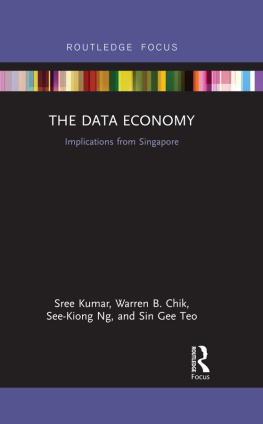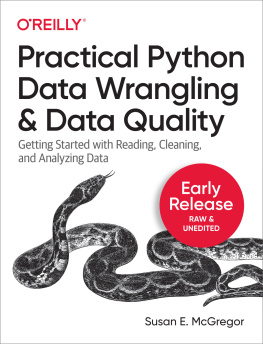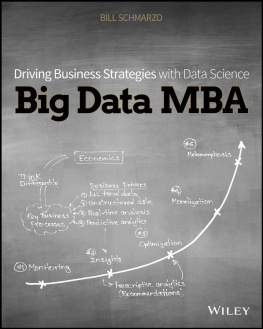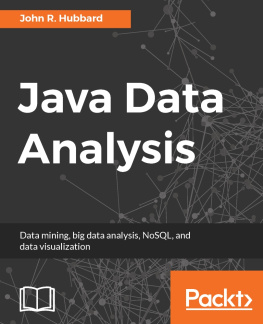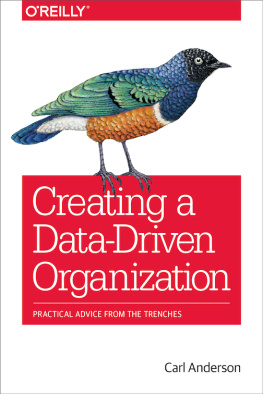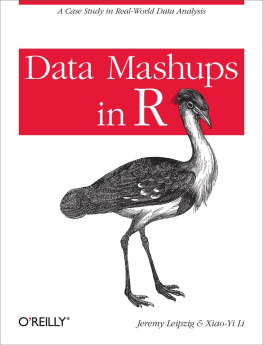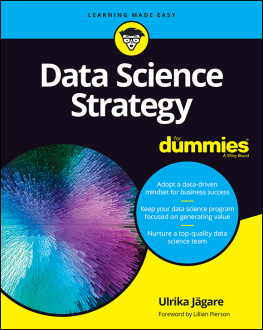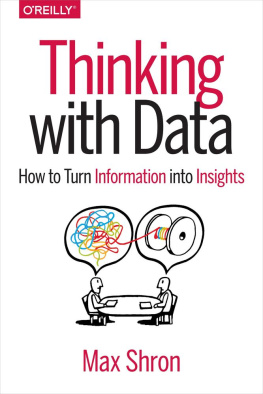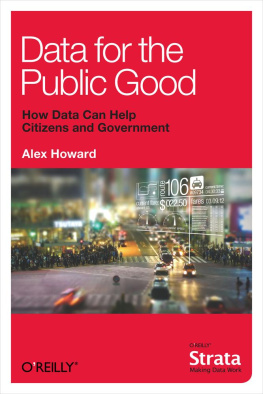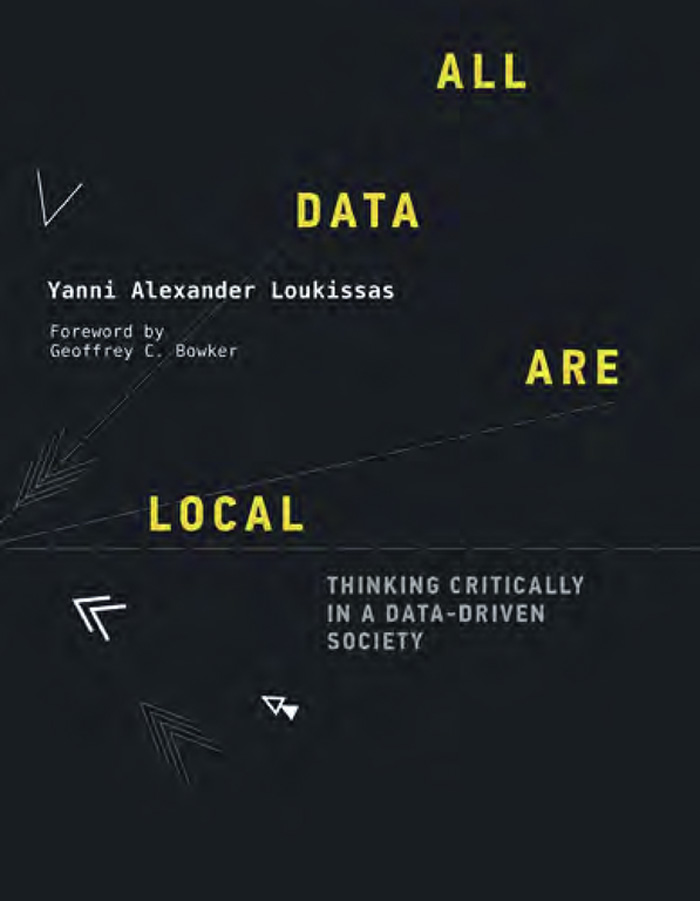2019 Yanni Alexander Loukissas
All rights reserved. No part of this book may be reproduced in any form by any electronic or mechanical means (including photocopying, recording, or information storage and retrieval) without permission in writing from the publisher.
This book was set in PF DIN Pro and DejaVu Sans Mono by The MIT Press.
Library of Congress Cataloging-in-Publication
Data Names: Loukissas, Yanni A. (Yanni Alexander), author.
Title: All data are local : thinking critically in a data-driven society / Yanni Alexander Loukissas; foreword by Geoffrey C. Bowker
Description: Cambridge, MA : The MIT Press, [2019] | Includes bibliographical references and index.
Identifiers: LCCN 2018030570 | ISBN 9780262039666 (hardcover : alk. paper) Subjects: LCSH: Electronic information resource literacy. | Media literacy.
Classification: LCC ZA4065 .L68 2019 | DDC 025.042dc23 LC record available at https://lccn.loc.gov/2018030570
10987654321
d_r0
To Kate
Contents
List of figures
- Chapter 2
- Chapter 3
- Chapter 4
- Chapter 5
- Chapter 6
Guide
FOREWORD
We've been building our world in both the notional West and global North for about the past two hundred years around the collection and analysis of datafrom the natural history and population censuses of yore, to the vast proliferation of data acquisition and analysis practices today. In general, the West isn't just the west and the global North is not just the north, but historical generalizations have a way of collapsing locals into empires; it's a convenient way of organizing knowledge. In this marvelous volume, Yanni Alexander Loukissas demonstrates that it's turtles all the way down: at whatever level you take an ordered set of givens about the world, you find local practice and exception.
The invocation at the end of the book is a clarion cry for our times: Do not mistake the availability of data as permission to remain at a distance. It does get messy when you tie data to a place; there were, as Loukissas tellingly shows, over a thousand designations of data in the New York Public Library. You can't simply ingest such data and assume that you can produce scientific facts. All you have access to is data that are machine recognizable as data, and there is a huge amount of work in making it recognizable. One might think of an example from the census: if I fit easily into machine-readable categories, I am easy to count (and therefore my presence counts for something), whereas if I am mixed race and gender nonspecific, I just won't be counted without a lot of extra work. I have served time (yes, it is a sort of prison sentence) looking at biodiversity data. Here Loukissas's insistence on the locality and heterogeneity of data ring true. Most biodiversity data are data from within a hundred miles of an arterial road (it's easier to get to). Global maps of biodiversity work best for areas where most collecting is done by appropriately trained taxonomists, and they are indexed by the specific schools that the taxonomists came out of (a map of fossil specimens in Europe in the nineteenth century was a good map of the Austro-Hungarian empirefolks trained out of Viennaand British onefolks trained out of Kew Gardens).
Loukissas suggests what for me is precisely the appropriate response: we must create counterdata to challenge normative algorithms. This raises the question of where the site of politics is today. It's hard to think, in the era of Donald Trump, that politics are contained in a Habermasian sphere of rational discourse. In an arena conjured by our data doubles exploiting our every weakness (why does Amazon keep suggesting light stuff that will not ever fulfill me but that will gain my attention?) and magnifying our fears (why does populism become the natural response to induced tribalism?), we are just not collectively performing as rational actors. The central issue is that data about us and the world are circulating much faster than we can have control over. How many of us manage our cookies or read our end-user license agreements carefully? Data are where it's at, and this book provides the best propaedeutic to a reasoned, effective plan of action.
Geoffrey C. Bowker
University of California at Irvine
July 2018
PREFACE
EMANUEL LEUTZ AMERICAN, SCHWBISCH GMND 18161868 WASHINGTON, D.C. ARTIST 1851 OIL ON CANVAS 97.34 11777 GIFT OF JOHN STEWART KENNEDY, 1897 THIS DEPICTION OF GEORGE WASHINGTON (17321799) CROSSING THE DELAWARE RIVER INTO NEW JERSEY TO LAUNCH AN ATTACK ON THE HESSIANS, GERMAN SOLDIERS HIRED BY GREAT BRITAIN ON DECEMBER 25, 1776A TURNING POINT IN THE REVOLUTIONARY WARWAS A GREAT SUCCESS IN BOTH GERMANY, WHERE LEUTZE PAINTED IT, AND AMERICA. ITS POPULARITY LAY CHIEFLY IN THE CHOICE OF SUBJECT, APPEALING AS IT DID TO FLOURISHING NATIONALISM AT MIDCENTURY NOT ONLY IN THOSE TWO COUNTRIES BUT AROUND THE WORLD. THE WORKS MONUMENTAL SCALE ADDED TO ITS EFFECTIVENESS. DESPITE SOME HISTORICAL INACCURACIES, THE PAINTING REMAINS AN OBJECT OF VENERATION AND IS ONE OF THE BEST-KNOWN AND MOST EXTENSIVELY PUBLISHED IMAGES IN AMERICAN ART.
Source: Metropolitan Museum of Art (excerpt, not full record)
Our scope of work included the design of wayfinding aids, such as label graphics for the artwork and maps to help visitors explore the collection firsthand as well as a series of digital media installations meant to offer a new kind of museum experience. The challenges that I now address, thirteen years later, in All Data Are Local, first presented themselves as I considered how visitors might use data to navigate the Met's vast holdings of American art.
The American Wing's collections data have been a work in progress since the mid-nineteenth century when the branch was still a separate building in the park. Since that time, almost twenty-five thousand individual objects, ranging in scale from colonial-era teaspoons to an entire room designed by the architect Frank Lloyd Wright, have been cataloged by the staff as data. Those data have served as a resource for generations of curators seeking to either register or uncover answers to everyday questions about the provenance, authorship, taxonomy, label text, or other assorted details of the myriad objects in the collection.
A reader unfamiliar with collections data might think of them as the contents of a spreadsheet: rows for each object in the collection, and columns for various attributes of those objects. But the attribute fields do not simply register commonplace facts about the artwork. Rather, they contain the kinds of locally relevant details that professional curators rely on for their daily work. The attribute column titled gallery location, for instance, helps curators track where a piece of the collection is being held, even if only for a moment to clean it or snap a new publicity photograph for an upcoming special exhibition. This list of locations is manually updated in real time to reflect the mundane passage of objects from one room to another. Such records are considered vital, for theft is an ongoing concern of the museum staff.
Indeed, these data were never intended for outsiders eyes. So when our team first encountered them, the collections data appeared justifiably strange. They had confounding gaps and curiously dated details, such as label text from other eras. Most peculiar of all, many of the visually striking objects in the collection were represented by tiny black-and-white photographs, only of use as identifiers for in-house staff who already knew the objects intimately.


